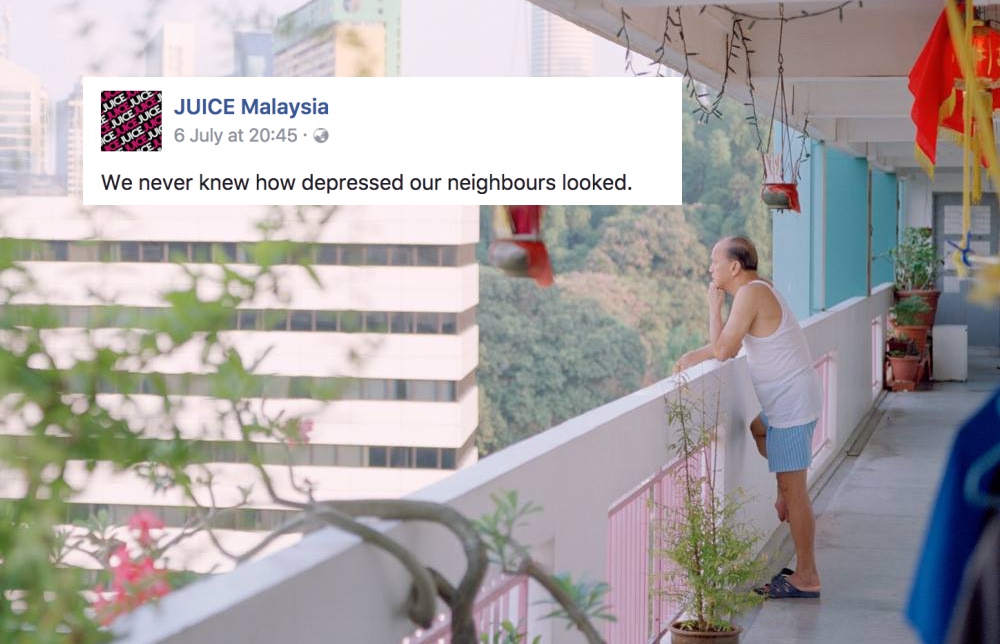Nguan, if you haven't heard of him by now, is a Singaporean photographer best known for his dreamy, pastel-hued photos.
Most of his work, which you can find on his Instagram and Facebook pages, features Singaporean sights and places, reflecting a gentle, nurturing gaze into the concrete jungle that is Singapore.
His photos aren't just eye candy material either. Sometimes, he photographs thought-provoking subjects, such as the golden staircase at Jalan Besar, an artwork by LASALLE student Priyageetha Dia:
A sideline project he did, Singapore Brothels, also features images that shed light on the seedy — but surprisingly, out in the open — places that look pristine and unassuming, save for the few visual indications that they are, in fact, part of a red-light zone:
But here's why we're talking about Nguan now.
Last week, JUICE magazine's Malaysian branch picked up on Nguan's photographic work, and interestingly, they claimed his photographs made Singapore — and by extension, its people — look "depressed":
In case you can't see the Facebook post, the caption reads, "We never knew how depressed our neighbours looked."
Sure, Singapore is a little underwhelming in some ways. Plenty of things to support that idea — the cost of living, high stress, fragmented relationships, stunted dreams, and the struggling, sterile growth of arts and sports, just to name a few.
As mentioned in the article itself, Nguan has the "ability to capture the paradox of urban living; the ever-increasing loneliness that wraps itself around city-dwellers despite living in such close quarters to one another."
[related_story]
Thus, Nguan's photos reflect a certain sadness and nostalgia that could feel depressing, embodying the struggles of Singapore and Singaporeans as time, people and circumstances change and evolve. He describes this in a description accompanying one of his albums of photos on Facebook, titled "Singapore":
"Singapore" is a portrait of living and longing in the city. The tender and lyrical tone used in the series is intended to mask themes of discombobulation and disconnection. Each picture is meant to seem simultaneously naïve and disquieting, so as to reflect the predicament of an adolescent nation torn between her future and the past.
But it isn't as simple as a depressing message, as you can see. Nguan's photos provide a certain reprieve from it, too.
Regarding his book How Loneliness Goes, Nguan indicates that his photos could possibly be some form of respite from the sadness.
My wish is for this book to wander in my stead, exist as a testament to existence, and credibly proffer the possibility of beauty as a balm for everyday sorrow.
Italian art and design website Domus also describes Nguan's photos as a "poetic depiction of his hometown that challenges the conventional narrative of modern Singapore as a spotless but soulless nation".
Indeed, Nguan's work portrays a Singapore that is not some dark and depressing place, but one where hope and beauty exists, sandwiched between moments of everyday life.
Yes, there is sadness, as with every other place in the world, but in our sadness, his photos seem to protest, lies beauty and the colour of life.
Top image adapted via Nguan's Facebook page.
If you like what you read, follow us on Facebook, Instagram, Twitter and Telegram to get the latest updates.
